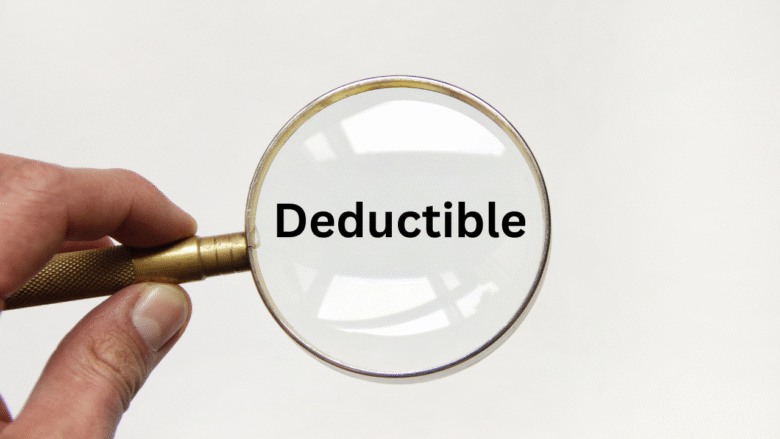Insurance can feel overwhelming, especially when you encounter terms like “deductible” that seem important but aren’t always clearly explained. Understanding your insurance deductible is crucial for making smart coverage decisions and avoiding financial surprises when you need to file a claim. This guide will break down exactly what deductibles are, how they function, and what you need to know to choose the right amount for your situation.
What is an Insurance Deductible?
An insurance deductible is the amount of money you pay out of your own pocket before your insurance coverage kicks in to cover the remaining costs. Think of it as your financial responsibility in any covered claim. For example, if you have a $1,000 deductible on your auto insurance and get into an accident that causes $3,000 in damage, you’ll pay the first $1,000, and your insurance company will cover the remaining $2,000.
Deductibles apply to most types of insurance, including auto, homeowners, renters, and health insurance. The specific amount varies based on your policy, but common deductible amounts range from $250 to $2,500, though they can be higher or lower depending on your coverage needs and budget.
How Deductibles Work
When you file an insurance claim, your deductible is subtracted from the total amount your insurance company pays out. This process happens automatically during claim processing. Your insurance company will either require you to pay the deductible directly to the repair shop or service provider, or they’ll deduct it from your claim settlement.
It’s important to note that deductibles typically apply per claim, not per year. This means if you file multiple claims during your policy period, you’ll need to pay your deductible for each separate incident. However, some health insurance policies work differently, with annual deductibles that reset each calendar year. The deductible amount remains the same regardless of your claim size, as long as the claim exceeds the deductible. If your claim is less than your deductible amount, you’ll pay the entire cost yourself, and your insurance won’t contribute anything.
Why Deductibles Exist
Insurance companies use deductibles to share risk with policyholders and keep premiums affordable. Without deductibles, insurance would be much more expensive because companies would pay for every small claim, including minor repairs and routine maintenance that people could reasonably handle themselves.
Deductibles also discourage frivolous or unnecessary claims. Having a financial stake increases the likelihood of maintaining your property and filing claims only for significant damages. This helps keep overall insurance costs down for everyone. From the insurance company’s perspective, deductibles reduce administrative costs by eliminating small claims that would be expensive to process relative to their value. This efficiency allows insurers to focus resources on larger, more serious claims where coverage truly matters.
Choosing the Right Deductible
Selecting your deductible involves balancing your monthly premium costs with your ability to pay out-of-pocket expenses when claims arise. Higher deductibles typically result in lower monthly premiums, while lower deductibles mean higher premiums but less financial impact when you file a claim.
Please take into account your emergency fund and monthly budget when making this decision. If you can comfortably afford a $1,000 unexpected expense, a higher deductible might save you money in the long run through reduced premiums. However, if a large unexpected expense creates financial hardship, a lower deductible provides more predictable costs. Also think about your risk tolerance and the likelihood of filing claims. If you’re a careful driver with a good record, you might choose a higher deductible on your auto insurance. You may want a lower deductible on your homeowners insurance if you reside in a region that frequently experiences severe weather.
Making Deductibles Work For You
Understanding insurance deductibles empowers you to make informed decisions about your coverage and budget effectively for potential claims. Remember that the cheapest premium isn’t always the best value if the deductible is more than you can afford to pay when you need coverage most.
Review your deductibles annually during policy renewal to ensure they still align with your financial situation. As your emergency fund grows or your circumstances change, you might benefit from adjusting your deductibles to optimize your insurance costs.
FAQs
1. Can I change my deductible after buying a policy?
Yes, most insurance companies allow you to adjust your deductible at renewal time or sometimes mid-policy. Changes typically affect your premium immediately.
2. Do all insurance claims require paying a deductible?
Not always. Some coverage types, like liability coverage in auto insurance, don’t have deductibles. Additionally, some policies offer deductible waivers for specific situations.
3. What happens if I can’t afford my deductible?
You’ll need to pay your deductible before receiving claim payment. Some repair shops offer payment plans, or you might need to use savings, credit, or loans to cover the cost.
4. Are deductibles tax-deductible?
Generally, insurance deductibles for personal property are not tax-deductible. However, business insurance deductibles may be deducted as business expenses.




